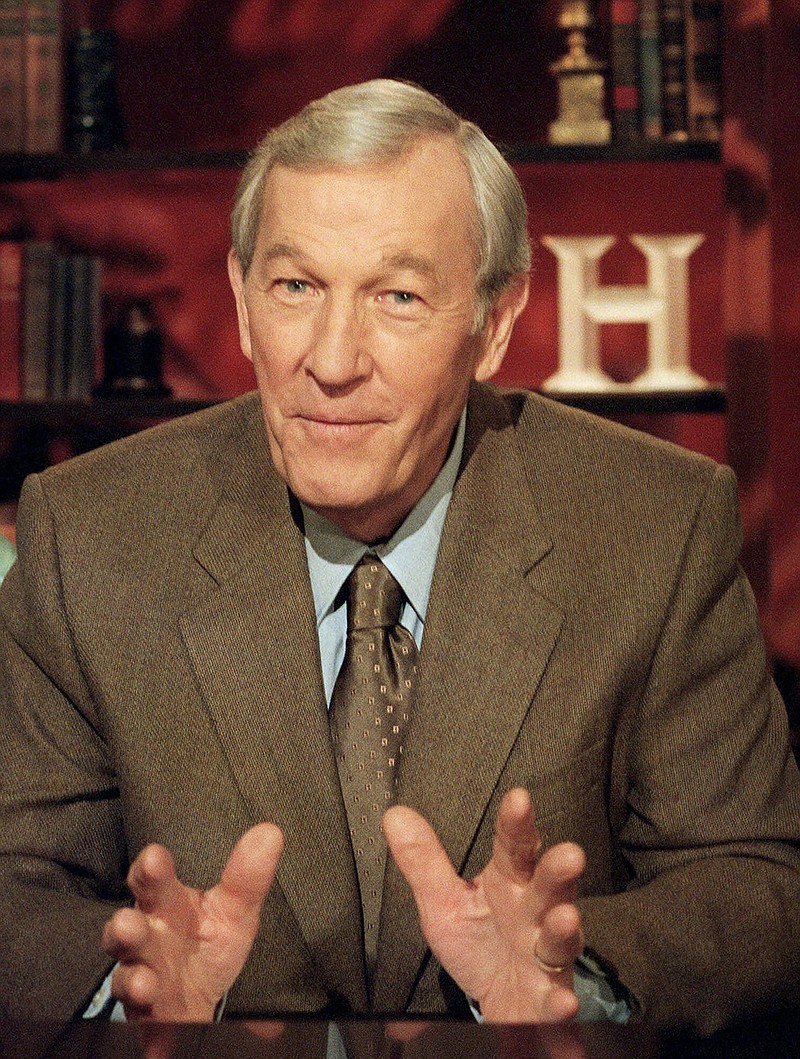Roger Mudd, the longtime political correspondent and anchor for NBC and CBS who once stumped U.S. Sen. Edward Kennedy by simply asking why he wanted to be president, has died. He was 93.
CBS News said that Mudd died Tuesday of complications of kidney failure at his home in McLean, Va.
During more than 30 years on network television, starting with CBS in 1961, Mudd covered Congress, elections and political conventions and was a frequent anchor and contributor to various specials. His career coincided with the flowering of television news, the pre-cable, pre-internet days when the big three networks and their powerhouse ranks of reporters were the main source of news for millions of Americans.
[Video not showing up above? Click here to watch » https://www.youtube.com/watch?v=eXoVnqGm5Vo]
Besides work at CBS and NBC, he did stints on PBS's "MacNeil/Lehrer NewsHour" and the History Channel.
When he joined Robert MacNeil and Jim Lehrer's show in 1987, Mudd told The Associated Press: "I think they regard news and information and fact and opinion with a reverence and respect that really is admirable."
He wrote a memoir, "The Place To Be," which came out in early 2008, and described the challenges and clashing egos he encountered working in Washington, where among other things he covered Congress for CBS for 15 years.
In an April 2008 interview on the "NewsHour," he said he "absolutely loved" keeping tabs on the nation's 100 senators and 435 representatives, "all of them wanting to talk, great access, politics morning, noon and night, as opposed to the White House, where everything is zipped up and tightly held."
Mudd received a George Foster Peabody Award for his November 1979 special "CBS Reports: Teddy," which aired just days before Kennedy officially announced his attempt to challenge President Jimmy Carter for the 1980 Democratic presidential nomination.
In the report, Mudd asked the Massachusetts senator a simple question: "Why do you want to be president?"
Kennedy was unable to give a focused answer or specify what he personally wanted to do.
It was enough to prompt New York Times columnist Tom Wicker to give Kennedy the "Safire Prize for Nattering Nabob of the Year." Carter went on to win the nomination for a second term, only to fall to Ronald Reagan in the general election.
As Mudd told viewers: "On the stump Kennedy can be dominating, imposing and masterful, but off the stump, in personal interviews, he can become stilted, elliptical and at times appear as if he really doesn't want America to get to know him."
Mudd spent a fair amount of time in the "CBS Evening News" anchor chair, substituting for Walter Cronkite when he was off and anchoring the Saturday evening news broadcasts from 1966 to 1973.
But he lost out to Dan Rather in the competition to succeed Cronkite as the news anchor at CBS when the latter retired in 1981. Cronkite, for one, had backed Rather because he didn't think Mudd had enough foreign experience.
It was then that Mudd jumped to NBC as its chief Washington correspondent. In addition, he co-anchored NBC's "Nightly News" with Tom Brokaw for a year before Brokaw went solo in 1983, and for a time co-hosted "Meet the Press," the Sunday morning interview show.
But when he left NBC, he said management viewed news as "a promotable commodity" rather than a public service. His departure had been rumored since he sharply criticized NBC News for canceling the newsmagazine show "1986," which he co-anchored with Connie Chung.
In five years on "NewsHour," Mudd served as a senior correspondent, essayist and occasional anchor. He hosted a number of reports on American history and education, including "Learning in America: Schools That Work" and "The Wizard: Thomas Alva Edison."
Mudd left "NewsHour" in 1992 to teach journalism at Princeton University, describing the offer to teach at the Ivy League school as simply too appealing to turn down. He also was a host and correspondent for the History Channel from 1995 to 2004.
Before joining CBS News, Mudd worked at radio station WTOP in Washington. Before that, he was news director at WRNL Radio in Richmond, Va., a reporter for the Richmond News Leader and a research assistant with the House Committee on Tax-Exempt Foundation. He was also an English and history teacher and football coach at Darlington School in Rome, Ga.
Mudd, who was born in Washington, received an honorary doctorate from Washington and Lee University, his alma mater, in 1977. He earned a master's degree in American History from the University of North Carolina in 1951.
According to CBS News, Mudd and his late wife, the former E.J. Spears, are survived by their four children, as well as 14 grandchildren and two great-grandchildren.

